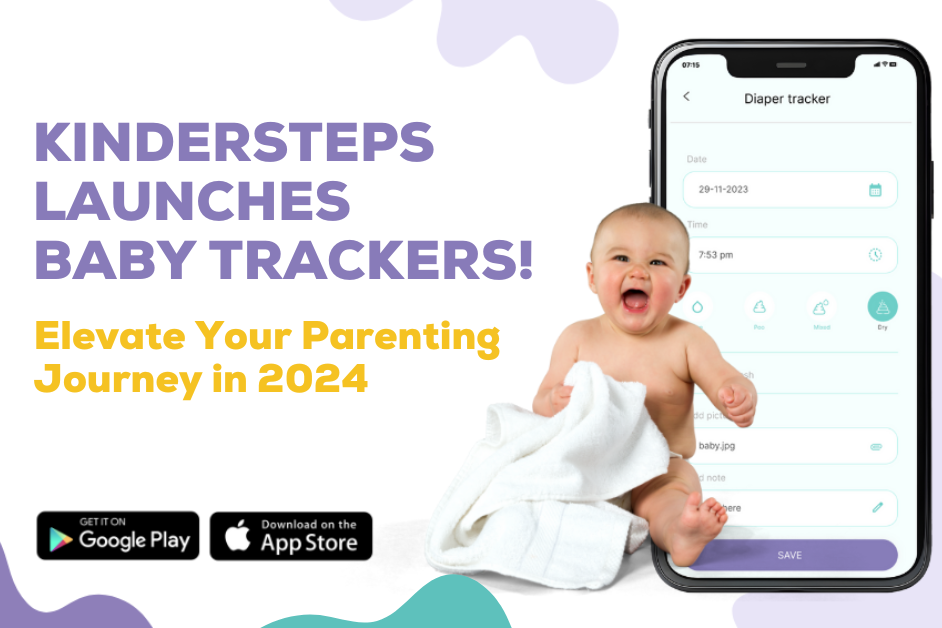The brain is divided into multiple sections that regulate everything we do, from hearing and walking to problem-solving and emotions. There are millions of brain cells, or neurons, in each location. Chemical messages are passed between neurons through synapses, which are small gaps between them. When these signals are repeated over and over more links are created and "neural pathways" are formed. These connections form at a rapid speed in the first few years of your child’s life.
From birth to 5 years, a child's brain goes through an incredible period of growth, generating more than a million synaptic connections per second which are formed through their connections, experiences, and surroundings.
So, how does this development take place? This is when the role of parents comes into play. Here are five parenting ideas to help your baby's brain development in a healthy way:
1. Foster caring and responsive relationships
The relationships that babies have with the individuals in their life have the greatest influence on their brain development. They need their parents and caregivers to respond to them in a loving, caring, and consistent manner.
Babies serve up invitations to interact with their parents and other caregivers from the moment they are born by cooing, smiling, and crying. Each of these little invites provides a chance for the caregiver to respond to the needs of their children. Parents and caregivers when paying attention to their children, and responding warmly, they feel protected. It demonstrates that they can rely on you when they are unwell, sad, or distressed.
2. Read together
Babies may not yet be able to speak, but they are born ready to learn. One of the most effective ways for assisting a child's brain development is reading. Because exposing kids to books of diverse genres at a young age can help them develop language and communication skills. It not only fosters a love for reading and makes good bonding moments, but it also expands their vocabulary and improves their cognitive thinking.
So, every time you read aloud to your child make sure to point to the book's illustrations and ask questions about the plot and characters. As this will help them to strengthen the connection between the words you say and the visuals on the page. Therefore, reading to your youngster on a regular basis is always encouraged.
3. Follow healthy sleep routines
Sleep is beneficial to the child’s healthy brain development. Good sleep will aid your child's brain in organizing the events of the day and replenishing neurotransmitters that will aid them in remembering, learning, and problem-solving. Stress-related toxins are also flushed away during sleep.
Hence, ascertain that your little one has a calm, comfortable sleeping environment. As they can become overstimulated by loud noises or prolonged stress. White noise might assist to create a relaxing atmosphere and can help newborns fall asleep more quickly as well as stay asleep longer.
4. Take play seriously
Young children are learning all the time. What appears to be a fun activity for them is actually very important work. While playing they are learning important life skills.
Playing with others helps them to learn to negotiate, take turns, and verbally express their ideas. Make-believe play encourages youngsters to understand others' sentiments and experience what it's like to be someone else. Engaging in imaginative free play, help them to solve problems and create new possibilities.
5. Go for regular health checkups
Visit your baby's healthcare provider on a regular basis. Keep your child's immunizations up to date, and chat to your doctor about how things are progressing and what to anticipate next. Thus, you don't need anything complicated or expensive to help your child's brain grow and develop. Along with nutritious food, cuddling, talking, playing, singing, and laughing together will help your baby's brain learn, grow, and thrive!
With Kindersteps you can not only receive answers to your concerns but also find some enjoyable "brain-building" activities to do with your child. Download our free parenting app today!

.jpg?alt=media&token=e1308ffe-2362-46ac-8ee5-e65de63ab899)




.jpg?alt=media&token=166b64a9-274c-400c-95e4-baf0013e7e43)
